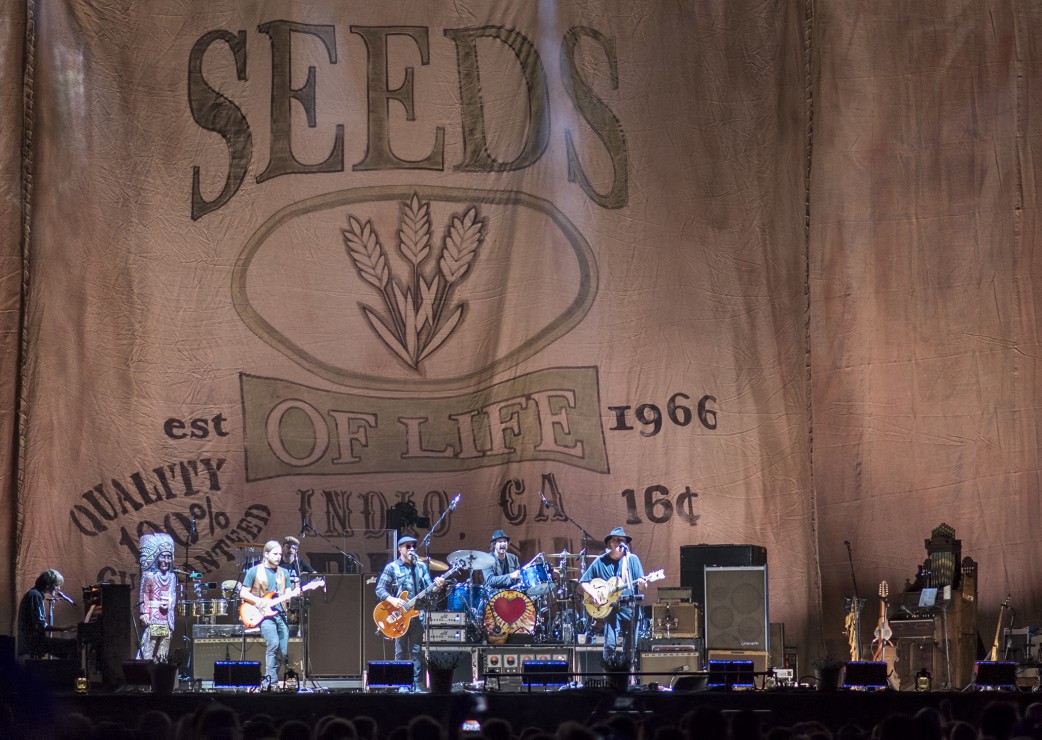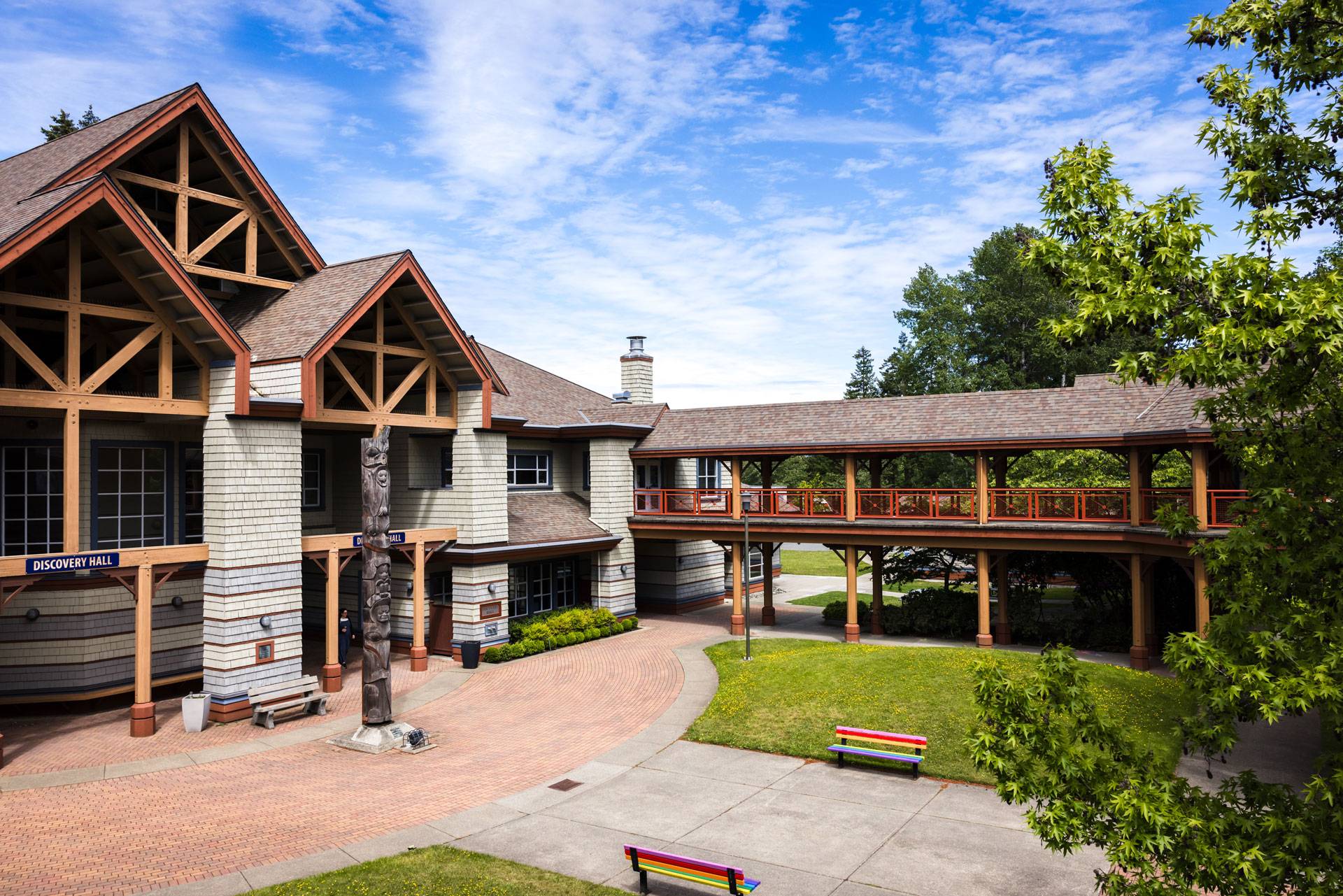It’s Saturday night and he walks on stage in a ratty T-shirt that reads “Water Is Life” with some gnarly hair sticking out of his old cowboy hat. Neil Young is here. He opens with a rendition of “After the Gold Rush,” and the hundreds of thousands of spectators cheer with glee, realizing unanimously that we are a part of this experience. The warm breeze is beginning to pick up and the palm trees surrounding us begin to bris- tle. I close my eyes and I smell that deliciously earthy desert air as he transitions to “Heart of Gold.”
Everything about this moment reminds us of our appreciation for the Earth, and this appreciation only grows as his performance unfolds.
The incredible thing about Young’s concert at Desert Trip in Indio, California, isn’t just that he’s still an amazing performer, or that he plays every single one of his greatest hits, or that he comes back on stage later to sing and jam with Paul McCartney. It isn’t that, at 70, he can still hit all the notes, or that his band, Promise of the Real, has some incredible guitarists—though all of these factors contribute to the magic.
The best part of the performance isn’t even the real life cliché of when a giant supermoon appears to the right of the stage as Young plays “Harvest Moon,” and the crowd slow dances under nature’s light.
No, the most striking part of the over-two-hour performance is the politically-charged undertones throughout. Proud Canadians who have flown south for the weekend are soon silenced as we realize the poignancy of the teepees, a symbol of solidarity with First Nations and the fight against the ongoing proliferation of pipelines in North America, while the lyrics to “Mother Earth” (“How long can you / Give and not receive / And feed this world / Ruled by greed”) hit just a bit too close to home.
He talks to us in his rather unique Eastern Canadian twang of an accent during his performance, making cracks at Donald Trump, referencing the Dakota Access Pipeline, and actually stopping the show to tell us about the California Seed Law, finally clarifying the stage’s backdrop image of a giant burlap sack of organic “Seeds of Life” from California.
“We’re going to break the law,” Young explains. He tells us what this law means—that organic seeds cannot be transported from one county to another. “So I’m going to give you some seeds, and you can take the seeds wherever you want, and then go and report yourself to the police.” Then he’s violently plunging his hand into the basket he is wielding, and he is throwing packets of seeds into the crowd, with the help of his band. “Pass these seeds back please!”
“Organic seeds for everyone!”
“Yes they’re free, they’re actually free! But if you break the law, you might not be, so keep your seeds in your pocket!”
He concludes his heavily sarcastic political interlude with “California seed law! It’s a piece of shit!”
By this point, the crowd is giddy. We’re booing. We’re laughing. We’re jumping around and we feel empowered by his wild abandon. He looks crazy, hurling the seeds haphazardly into the crowd, yelling not entirely into the microphone—it’s contagious.
Then he asks us: “What if some corporation owned all the seeds? Oh boy. What a bugger that would be,” and the crowd quiets down for a moment.
The concert continues with an extended rendition of “Down by the River,” and we continue to rock, but I can’t shake that rather ominous feeling. Young is warning us, and, weeks after the performance, his words continue to ring true: “Oh, freedom land / Can you let this go / Down to the streets / Where the numbers grow / Respect Mother Earth / And her giving ways / Or trade away / Our children’s days.”







